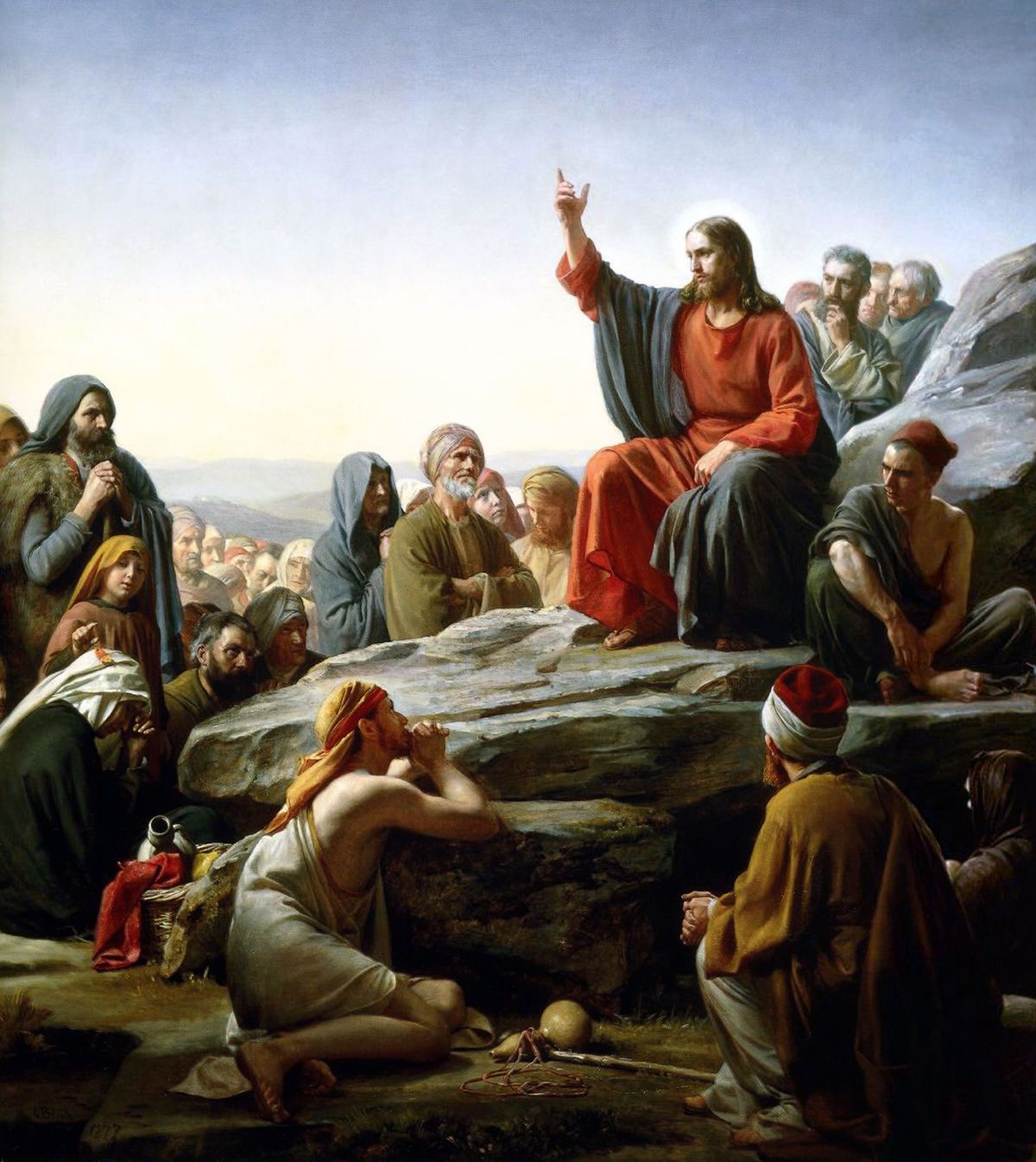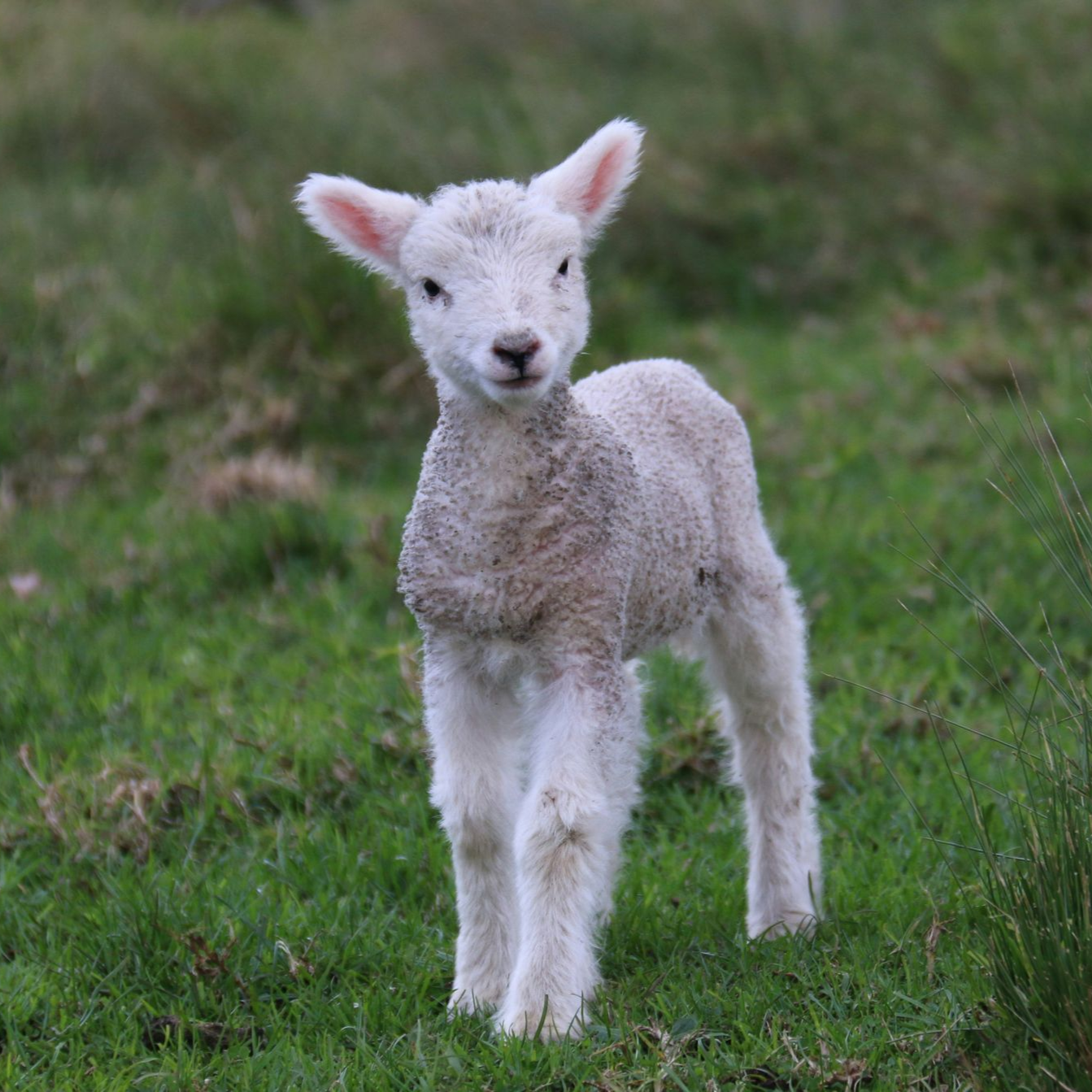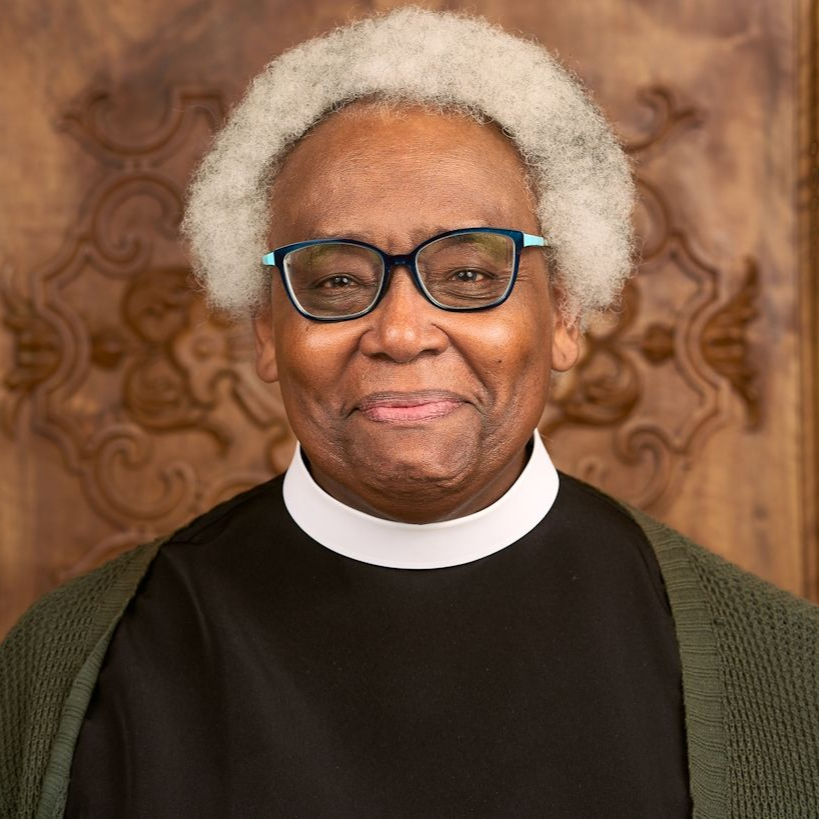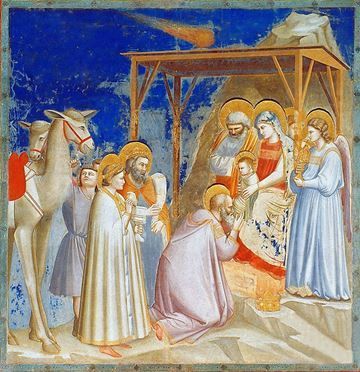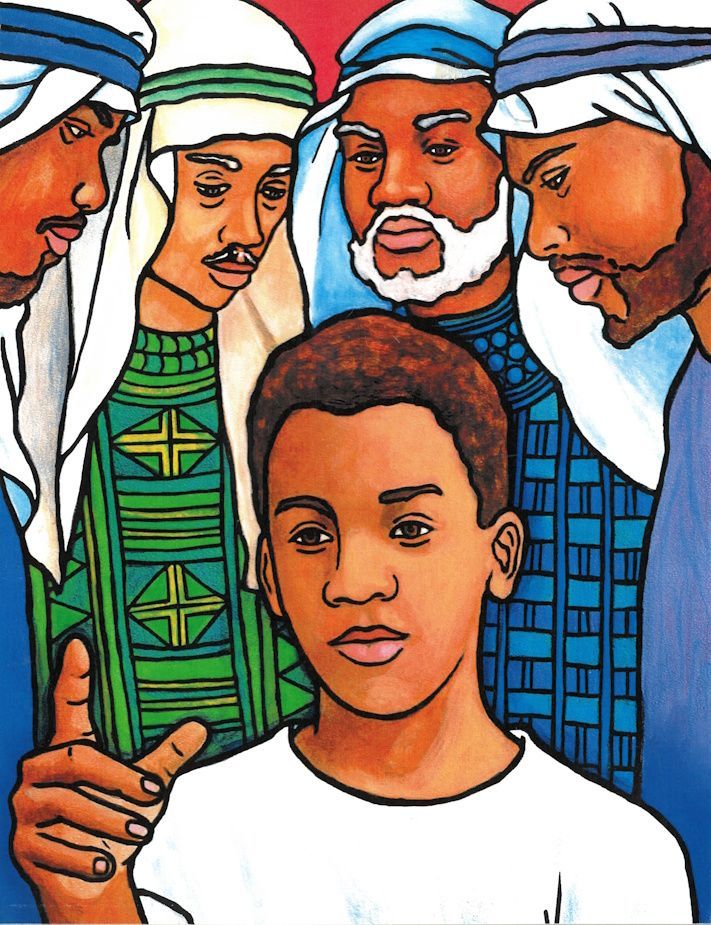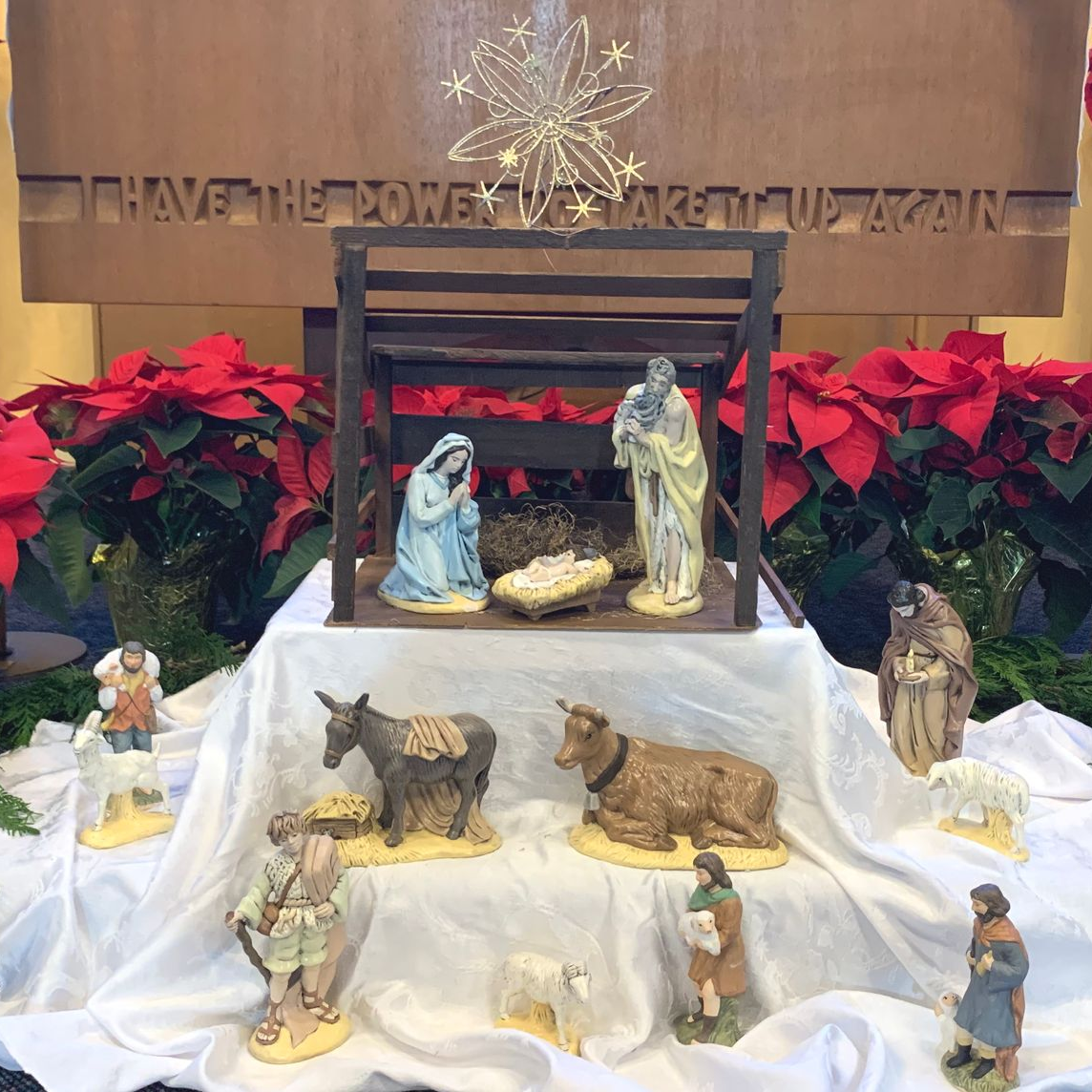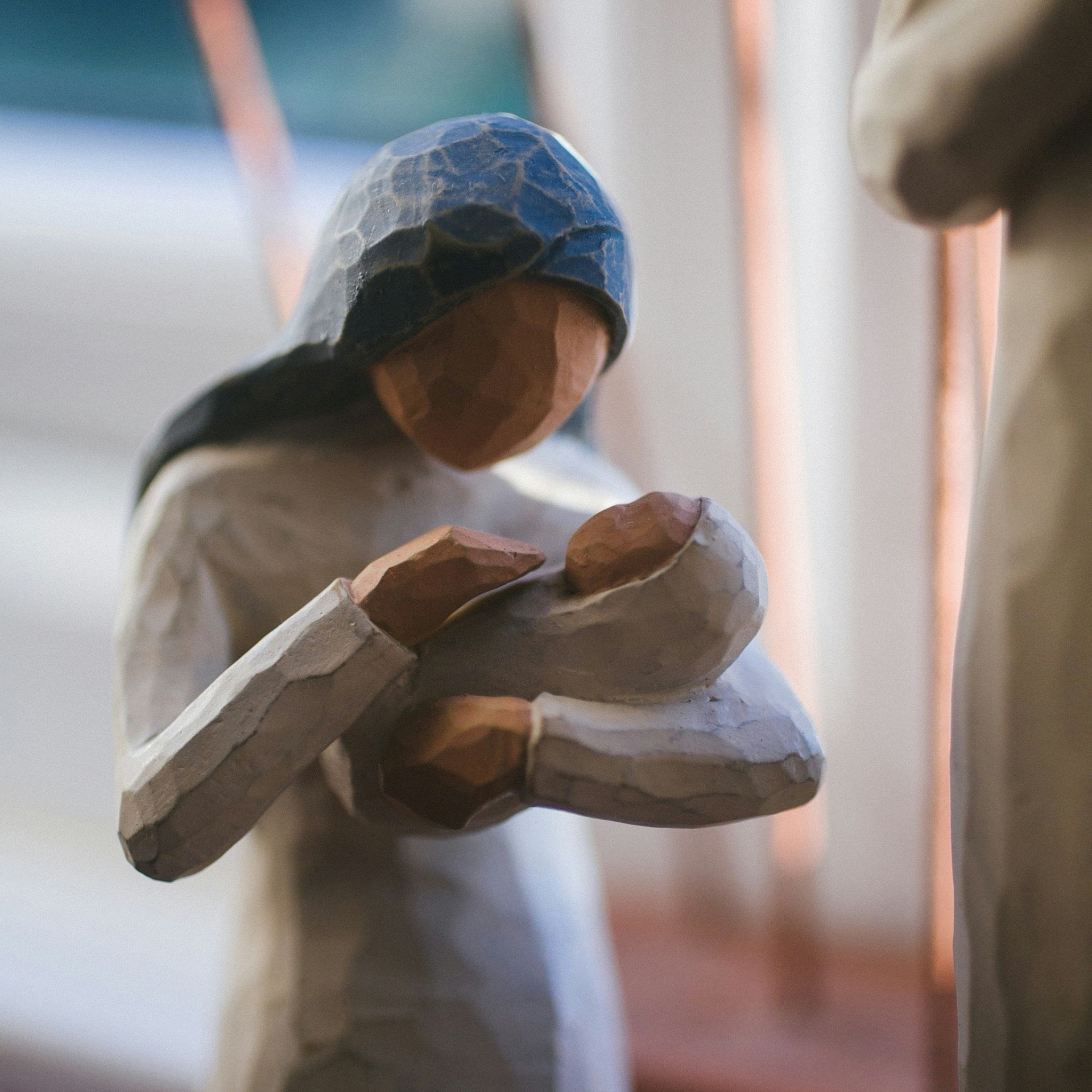Enoughness Is Abundance
Abundance happens when God is present and when we’re willing to give generously to others.
2024-44
sermon preached at Church of the Good Shepherd, Federal Way, WA
www.goodshepherdfw.org
by the Rev. Josh Hosler, Rector
Tenth Sunday after Pentecost (Proper 12B), July 28, 2024
2 Kings 4:42-44 ;
Psalm 145:10-19 ;
Ephesians 3:14-21 ;
John 6:1-21
Here's a factoid that I’d love it if all Christians learned well and remembered: the Feeding of the Five Thousand is the only one of Jesus’ miracles recorded in all four gospels.
Through most of this year, we’ve been hearing from the Gospel of Mark. But Mark is the shortest of the gospels—so short that there isn’t enough of it to stretch into 52 weeks of the year! So beginning today, we’re taking a five-week break from Mark and shifting over to John, the gospel that is by far the most different from the other three.
Yet remember when I said that last week’s reading was two snippets from Mark with a snippet left out of the middle? Here is that snippet today, but remembered by a different community some decades later.
I had never noticed before that for all the ways John is different, John tells this part of the story in exactly the same order Mark does, albeit in his own Johannine way. Jesus and the disciples arrive at a place and find five thousand people waiting for them. The people get hungry. Someone has precisely five loaves and two fish. Jesus takes the food, gives thanks to God for it, breaks it, and gives it to everyone. And after everyone has eaten their fill, the disciples gather up precisely twelve baskets of leftovers.
But that’s not all. The disciples then get into their boat, leaving Jesus behind. There is a strong wind working against the disciples as they row. Jesus walks on the water to come to them, and then they reach the other side.
I find these parallels astounding. Either John’s community had a copy of Mark’s gospel but chose to use almost none of it, or they had among them people who remembered extremely well the events of that day in particular. It’s as if we find here a pivot point, a core formative memory, perhaps even the key to everything that Jesus was about during his ministry.
What are some ways we could express the importance of this core memory of Jesus?
Is the multiplication of food the most important thing? Was it magic—alakazam, a la peanut butter sandwiches, and food keeps appearing? If that’s the case, then it could never happen without Jesus around.
Or was it simple generosity—one person gives, and then other people are also inspired to give from what they hadn’t admitted they’d brought with them? If that’s the case, then it may no longer feel to you like miracle enough.
Honestly, though, I’m not much interested in the distinction. Because I think either way, two things were necessary to this pivotal event: the presence of Christ among the people, and the willing generosity of somebody, anybody, even a child, to get the process moving. I don’t believe Jesus would have performed a miraculous production of food for people who were unwilling to be generous with one another. But neither do I believe that the boy would have offered his lunch without a simple, childlike trust that it would somehow be enough.
Abundance happens when God is present and when we’re willing to give generously to others.
Now, abundance is a wonderful gift when it happens, but most of the time I don’t think it’s necessary. Enoughness is fine with me. Actually, I think enoughness is the conversation I’m more interested in having with people, because enoughness is what our whole culture needs to work on. Who hasn’t had the experience, for instance, of going to the drug store for cold medicine, only to be overwhelmed with the abundance and variety of available options?
In America, to be presented with abundance that we didn’t personally work for is the default setting, so much so that we might feel cheated when not all the options are available to us. Even when we have enough, we keep wanting more. We want to sock some away, which is one thing—or we want to be gluttonous, which is another. We do this out of fear of not having enough at some point in the future. The result is that others don’t have enough.
In contrast, our call from God is to carry each other, to make sure that we all have enough. There’s a reason we ask God for our “daily bread”—not a lifetime supply.
Likewise, the boy who offered his food to Jesus didn’t seem to worry about whether there would be enough; he just gave generously without fear of missing his own lunch or, for that matter, lunch every day for the rest of his life!
There’s one more factor that is, I believe, key to the Feeding of the Five Thousand, and it becomes clearer when we look at our parallel passage today from the Second Book of Kings. Centuries before Jesus, the Prophet Elisha may have worried about whether there would be enough, but he considered a factor that many of us would overlook: this unnamed man from Baal-shalishah had brought an offering from the “first fruits,” the earliest reapings of his harvest, specifically to share it.
Giving away our leftovers is good, but it’s not especially generous. Giving the first and best of what we have for the sake of God’s work among us is a pattern that echoes throughout the history of Israel. Elisha expected that wherever this highest level of generosity is found, God will guide the process.
Apparently, so did the boy with the loaves and fishes. It takes a child or a prophet to see this. A child or a prophet can tell you that the only way you can have enough is to give away the first and best of what you have, freely, without fearful hedging, without an agenda, simply because your giving gives joy to others. Children and prophets can see the enoughness.
But what if we don’t have enough? Well, in that case, our challenge is to give from the “not enough”—to trust that God’s abundance is not only a factor, but is the main factor. Sometimes, in the short term, we do indeed run out of resources. And that’s when we need to count on our community to sustain us. When we make our motto “I’ve got mine,” we get in God’s way. But when we trust in God’s abundance and pair that trust with generosity, God may well work through the process so that we find that we do indeed have enough—and that perhaps we are even steeped in abundance.
Last week I said the key was compassion. Today I say the key is generosity. Because the one leads to the other.
All year long in our liturgy, as we have prepared to bring our gifts to the altar, I have led us there with this prayer: “Rooted in the generosity of God’s creation, let us share our gifts at this holy altar in full confidence that God’s Spirit will renew us and will continue to reconcile the entire world.” We hear today from the Letter to the Ephesians that we are “rooted and grounded in love.” As we grow and stretch our branches toward heaven, God gives us the ability to comprehend just how amazing this life is, and just how urgent is the call to share the joy of it with one another.
Every Sunday, we get to decide to show up among a community of fellow Christians, hear the stories that guide our faith, pray together for God’s presence and action, and then give of ourselves: to share our money, so that it can be spread around more freely, and to share our God-given gifts with one another and the world.
Then, having offered ourselves and the products of our labor to God, at this altar we take part in a miracle. Our offerings are transformed and given back to us, specifically to be ingested so they can nourish us further. We never run out, because every single Sunday, we’re back again doing the same thing, perpetually being fueled by the miracle of God’s abundance.
To set aside Sunday mornings is to set aside the first fruits of our time. We may have to work or go to school all week. We may want to save some time also for fun and relaxation. We may find it difficult to imagine, after a busy week chock full of abundant opportunities, that Sunday morning could be anything other than a day for sleeping in! And yes, we have every right to rest, and we should rest.
But I observe that when Sunday morning isn’t even in question—when I know for certain that I’ll be with this community every week at this time—either the time for rest takes care of itself, or I am inspired to shift my priorities in a healthier way. It’s another miracle of enoughness that is also a miracle of abundance. When we show up and hang in there together, giving Sunday mornings as a gift of first fruits, we invest in one another and in God’s dream of beloved community.
After all this, there is still the other part of the story, the part that makes John’s parallel with Mark especially uncanny. The disciples get into their boat, leaving Jesus behind. There is a strong wind working against the disciples as they row. Jesus walks on the water to come to them, and then they reach the other side.
In John’s gospel, we hear, “And immediately the boat reached the land toward which they were going.” This is a reference to Psalm 107. Verse 9 of that psalm says, “For he satisfies the thirsty and fills the hungry with good things.” From there the psalm describes the people not recognizing God’s generosity and experiencing hardship and lack, including a storm at sea. Then they cry out to God for help. Verses 29 and 30 say: “He stilled the storm to a whisper and quieted the waves of the sea. Then were they glad because of the calm, and he brought them to the harbor they were bound for.”
In both Mark and John, when Jesus comes to the disciples on the water and they are afraid, he says to them, “It is I.” The English translation obscures the deeper reference here. In Greek it’s “Ego eimi,” the same words Moses heard from a burning bush: “I AM THAT I AM.” The maker of the whole universe is present, right here, right now.
This is enough. And this is more than enough: this is everything.




